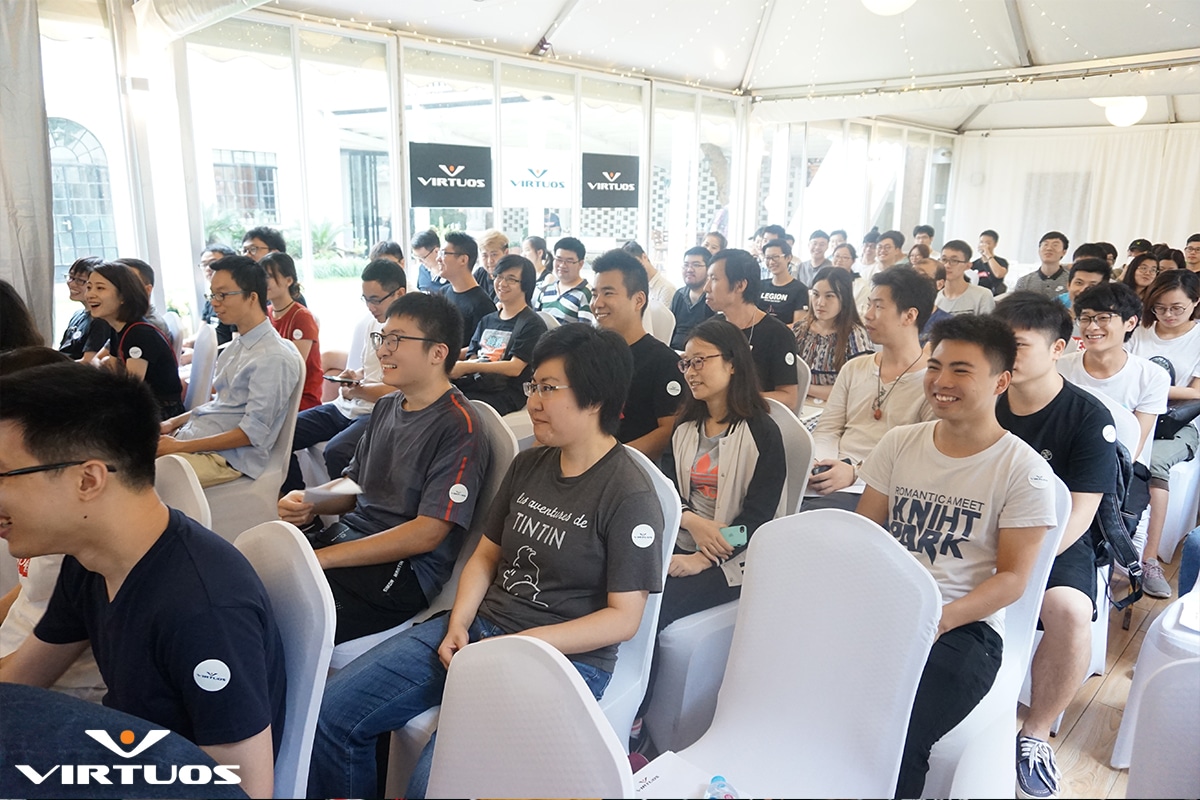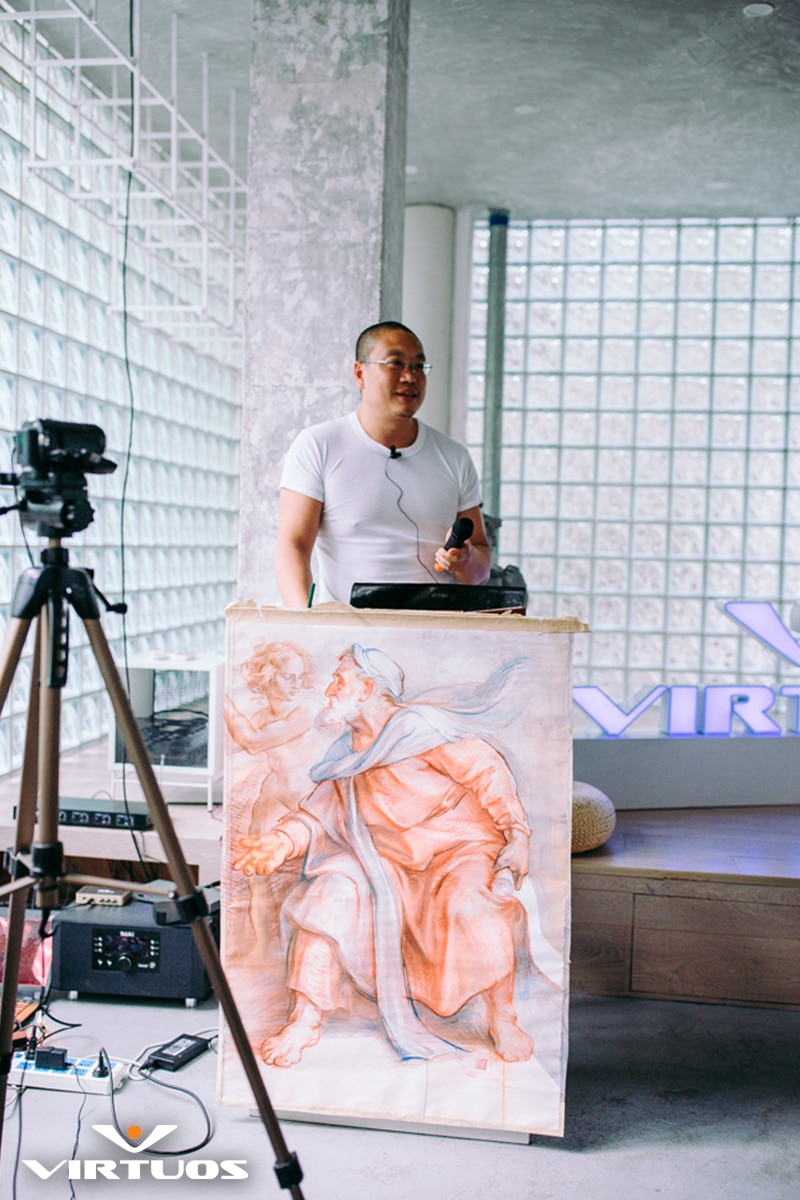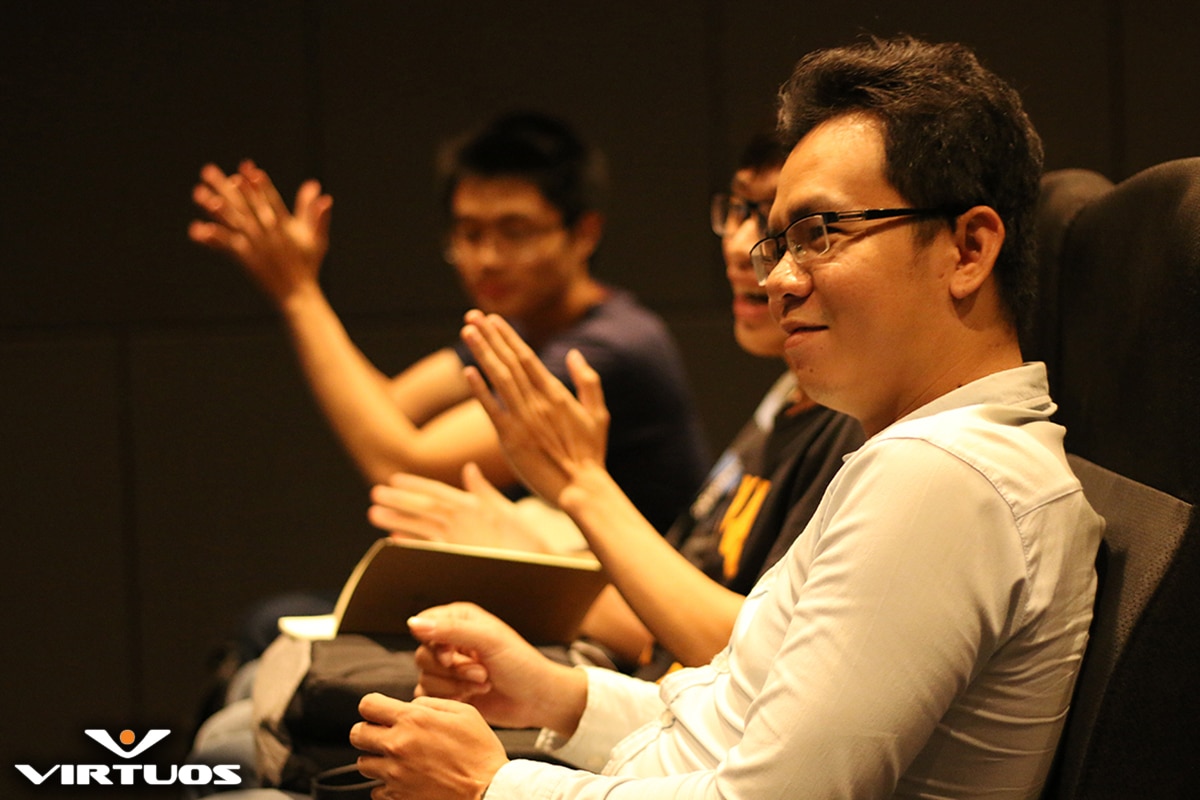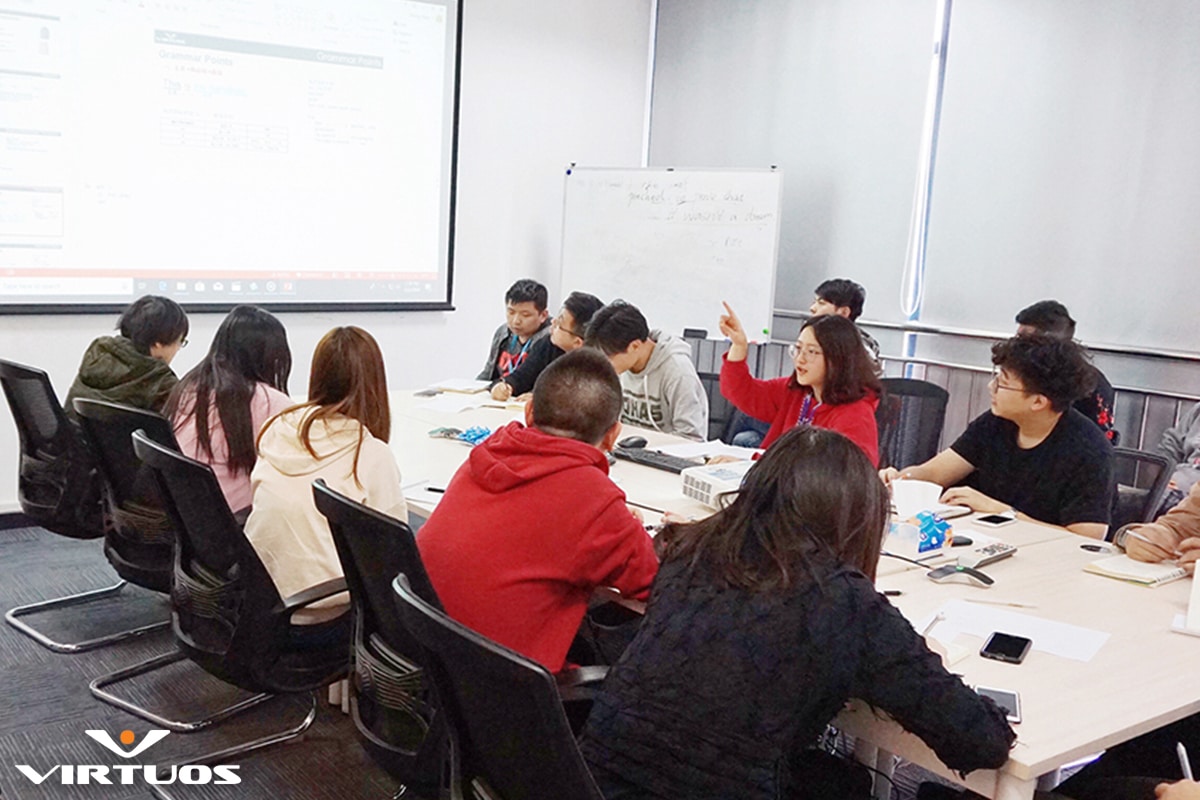This article is part of an editorial series of Expert Talks by Virtuos, aimed at sharing the learnings and best practices in global game development and art production. In this instalment, Samuel Stevenin, Learning and Development Director of Sparx* – A Virtuos Studio, talks about why training is crucially important to employees and companies, and how Virtuos’ training system was developed.
It’s no secret that offering internal staff training can drastically improve the skillset and aptitude of a team. Virtuos certainly buys into this philosophy with more than 1,800 people trained so far!
For many years, the company has effectively managed training through a number of activities from day one of an employee’s journey. It’s simply:
• Initial on-boarding training to ensure the level of the intake of juniors reach industry standards.
• On-going in-class training to ensure artists stay up-to-date with new tools and workflows.
• Ad hoc sharing sessions adds layers of good information – based on good practice and professional tips.

Virtuos’ belief is that this format is reaching its limit. There are 3 clear factors at play:
1. It is no secret that a new generation of employees are eager for fast and simple learning. If we’re honest, their ability to focus is short and they become less and less interested in long training sessions. Though they are able to adapt easily to new technology and tools, they are less enamoured by classic learning. Learning methods need to adapt to the “social-media” culture: short, simple and attractive!!
2. If we look at other factors – Let’s face it, turn-over rate is becoming a threat we need to deal with – the market is very competitive and artists have more and more opportunities to jump from one company to another. The challenge is now to shorten the learning curve of our artists so they can bring the most of their talent as early as possible – It’s a win-win.
3. Finally, on this topic – Virtuos’ staff are fully focused on the job at hand and developing fundamental knowledge, i.e. core skill like anatomy for characters, skill that take tens of years to master, is extremely difficult, as projects and immediate needs are often taking over long term development.
TRAINING DEMANDS CHANGING RAPIDLY

So how does Virtuos overcome those new challenges? Quite simply, it has been to fragment information into small chunks and expose artists to it as often as possible, through different media channels. This exposure to knowledge is closely related to storytelling, and Virtuos believes that knowledge can be acquired through the layering of simple tranches of information, like learning long stories by reading the same books over and over, one chapter at the time.
Fragmenting the information was made possible by developing a new learning format, totally modular, allowing Virtuos to use existing content as small standalone units or larger ones by combining them. When building this format, a great deal of effort has been made to make the content as vocational as possible, by stripping out information not directly connected to it and also by injecting a ton of experience and best practice learned on the projects from the team.
NEW CHANNELS FOR LEARNING
Another aspect of this iterative exposure has been to transfer knowledge through channels that were, until recently, not used for that purpose. The best example is English learning, Virtuos was (and is still is) heavily investing in ensuring Virtuos’ leaders to communicate in English – but the change here has been to make the English language training totally business-orientated.
The learning of deep English business vocabulary better serves the requirements of our projects and clients. The case studies come straight from our project experience. This help us not only make our teams be business-English ready sooner, but it has been a great source of motivation for them as they were quickly able to use what they learned in-class almost right away in their work. Through English learning our artists are exposed to learning content that help directly in their development as artist.

SPECIALIZATION
The last aspect of this change of strategy is about refining the learning path of our employees and orienting them toward specific expertise. The new learning management system that will be released in a few week will give us the ability to monitor the development of our employee and take into consideration their area of high performance and preferences to orient their career toward specific area of expertise. This specialization answer obviously a business need, the time of employee “generalist” – able to take on any project – is gone, we are fragmenting our large team in small units of specialist. Grouping people with high motivation in a specific domain allow us to grow fast in areas for which our capacity was too few like lighting, VFX or Houdini.
Right now we are at this very exciting time in which all our plans are finally emerging into concrete actions. The reaction from our artists has been excellent so far, looking forward 2019 and a full scale implementation!

- For business enquiries, please contact: [email protected]
- Find more about Virtuos, please visit: www.virtuosgames.com
- Check our Artstation: www.artstation.com/virtuosgames
Founded in 2004, Virtuos Holdings Pte. Ltd. is a leading videogame content production company with operations in Singapore, China, Vietnam, Canada, France, Japan, Ireland, and the United States. With 1,600 full-time professionals, Virtuos specializes in game development and 3D art production for AAA consoles, PC, and mobile titles, enabling its customers to generate additional revenue and achieve operational efficiency. For over a decade, Virtuos has successfully delivered high quality content for over 1,300 projects and its customers include 18 of the top 20 digital entertainment companies worldwide. For more information, please visit: www.virtuosgames.com
About SPARX*
A VIRTUOS COMPANY.
Founded in 1995, Sparx* became known for high quality visual effects, quickly building a portfolio of over 1,000 TV commercials, Hollywood 3D feature film & TV series. The studio has been acquired by Virtuos in 2011 as its movie division. For more information, please visit: www.sparx.com
About Samuel Stevenin
Serving as Learning and Development Director at Sparx* – A Virtuos Studio.
Samuel Stevenin has over 16 years’ experience in Animation with a theoretical background in art history. He previously served as CG Director and General Manager of SPARX* Studio. Samuel is responsible for managing and training CG crew for Virtuos and Sparx*’s game and animation projects, also devoting in creating tools and workflow for production optimization.

